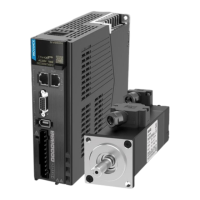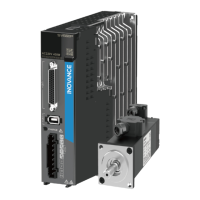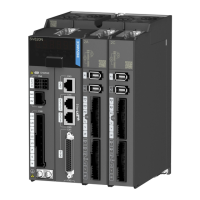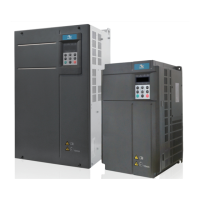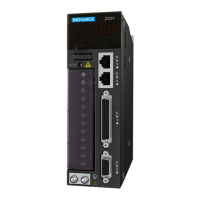Solutions to Common EMC Interference Problems
‑102‑
6 Solutions to Common EMC Interference Problems
6.1 Malfunction of the Residual Current Device (RCD)
If a residual current device (RCD) is needed, select the RCD according to the following
requirements:
● Use a B‑type RCD because the drive may generate DC leakage current in the
protective conductor.
● For each drive, use an RCD whose tripping current is not lower than 150 mA to
prevent RCD malfunction due to high‑frequency leakage current generated by the
drive.
● When multiple drives are connected in parallel and share one RCD, select an RCD
whose tripping current is not lower than 300 mA.
● It is recommended to use Chint or Schneider RCDs.
When malfunction occurs on the RCD, take the following measures.
Table 6–1 Measures against leakage current
Symptom
Possible Cause
Measure
The RCD trips at
the moment of
power‑on.
The anti‑interference
performance of the RCD
is weak.
● It is recommended to use Siemens or
Schneider RCDs.
● It is recommended to use a RCD with a
higher tripping current.
● Move the unbalanced load to the front
end of the RCD.
The tripping current of
the RCD is too low.
An unbalanced load is
connected to the rear
end of the RCD.
The capacitance of the
front end of the servo
drive is too high.
The RCD trips
during operation.
The anti‑interference
performance of the RCD
is weak.
● It is recommended to use Siemens or
Schneider RCDs.
● It is recommended to use a RCD with a
higher tripping current.
● Install a simple filter on the input side
of the drive and wind the magnetic ring
on the LN and RST cables near the
RCD, as shown in "
Figure 6–1 Magnetic
ring on the input side
"
on page 103
.
● Reduce the carrier frequency without
compromising the performance.
● Reduce the length of motor cables.
The tripping current of
the RCD is too low.
An unbalanced load is
connected to the rear
end of the RCD.
For motor cables and the
motor, the distributed
capacitance to ground is
too high.
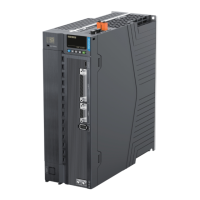
